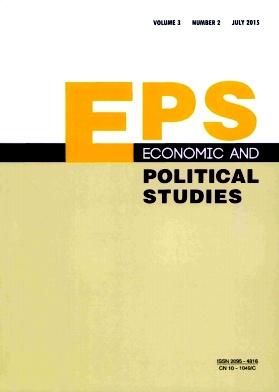The emergence of the United Arab Emirates as a global soft power: current strategies and future challenges
IF 1.5
4区 社会学
Q2 SOCIAL SCIENCES, INTERDISCIPLINARY
引用次数: 2
Abstract
Abstract Using the Soft Power 30 Index, this research focusses on assessing the soft power status of the United Arab Emirates (UAE) by examining the elements of its soft power and potential challenges it may face in the future. This study conducts in-depth interviews with foreign diplomats and academics based in the UAE and Emirati diplomats and academics. These data are supplemented with primary and secondary data from governmental and international agencies as well as media sources. The UAE’s case demonstrates that soft power can be consciously developed by any country regardless of its regime type, size, location, and religious or racial background by getting its domestic affairs in order. A country’s domestic success in governance, enterprise, culture, education and digital infrastructure leads to global attraction, which ultimately enhances the image of a country such as the UAE. It eventually creates opportunities for more global partnerships and engagements in the areas of multilateralism, philanthropy, peacebuilding, conflict resolution and event hosting. However, these efforts face the following challenges: the threat of widely diffused actions among public and private actors, the financial cost of soft power engagement and projections, the UAE’s lack of a global media platform for shaping global agendas and its increasing use of hard power in response to geopolitical threats which can negatively affect its image.阿拉伯联合酋长国作为全球软实力的崛起:当前战略和未来挑战
摘要本研究采用软实力30指数,通过考察阿联酋软实力的要素及其未来可能面临的潜在挑战,重点评估阿联酋的软实力状况。本研究对驻阿联酋的外国外交官和学者以及阿联酋外交官和学者进行了深入采访。这些数据由政府和国际机构以及媒体来源的主要和次要数据补充。阿联酋的案例表明,任何国家,无论其政权类型、规模、地点、宗教或种族背景如何,都可以有意识地通过整顿国内事务来发展软实力。一个国家在治理、企业、文化、教育和数字基础设施方面的国内成功会带来全球吸引力,最终提升阿联酋等国家的形象。它最终为多边主义、慈善事业、建设和平、解决冲突和举办活动等领域的更多全球伙伴关系和参与创造了机会。然而,这些努力面临着以下挑战:公共和私人行为者广泛分散行动的威胁,软实力参与和预测的财务成本,阿联酋缺乏制定全球议程的全球媒体平台,以及在应对可能对其形象产生负面影响的地缘政治威胁时越来越多地使用硬实力。
本文章由计算机程序翻译,如有差异,请以英文原文为准。
求助全文
约1分钟内获得全文
求助全文
来源期刊

Economic and Political Studies-EPS
SOCIAL SCIENCES, INTERDISCIPLINARY-
CiteScore
5.60
自引率
4.20%
发文量
29
 求助内容:
求助内容: 应助结果提醒方式:
应助结果提醒方式:


